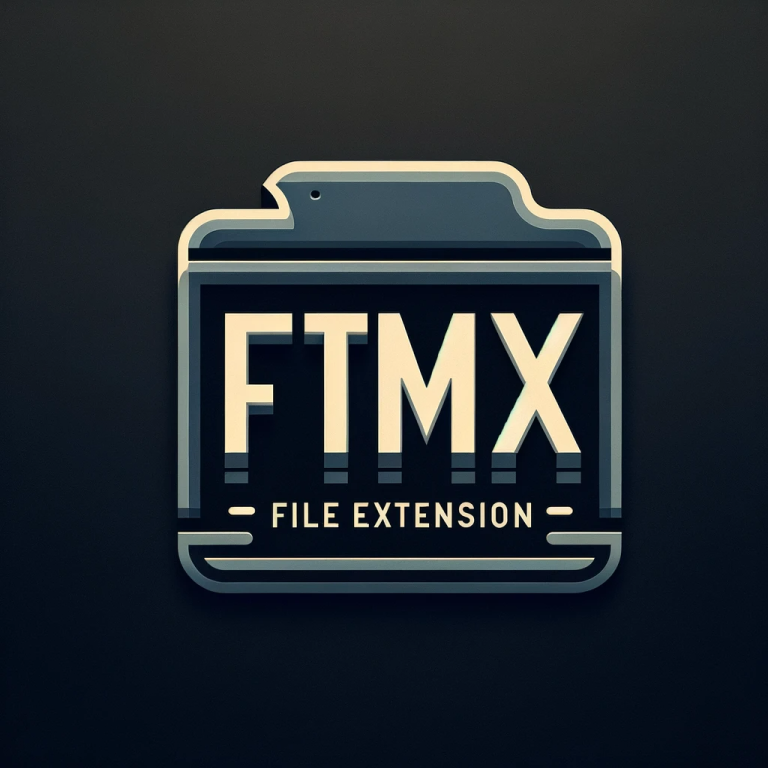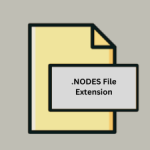.FTMX File Extension

Finale 2014 Score Template
| Developer | MakeMusic |
| Popularity | |
| Category | Audio Files |
| Format | .FTMX |
| Cross Platform | Update Soon |
What is an FTMX file?
The .FTMX file extension is closely associated with Finale, a professional music notation software developed by MakeMusic, Inc. These files serve as templates for creating musical scores within the software.
Musical scores are vital in the world of composition, as they provide a visual representation of a piece of music, indicating notes, rhythms, dynamics, and various other musical notations.
Finale simplifies the process of creating these scores, and .FTMX files play a pivotal role in this endeavor.
More Information.
The history of the .FTMX file extension is closely intertwined with the history of Finale. The software has gone through numerous iterations and updates, with each version introducing enhancements and improvements.
The initial purpose of .FTMX files was to provide users with a set of predefined musical notations and layout settings.
These templates served as a foundation upon which users could build their compositions, saving them time and effort in the process.
Origin Of This File.
The origin of the .FTMX file extension can be traced back to the inception of Finale itself. Finale, first released in 1988, was developed to provide composers and musicians with a powerful tool for creating high-quality musical scores.
As the software evolved, the need for efficient templates to speed up the composition process became apparent.
This led to the creation of .FTMX files, which act as pre-designed score templates, offering a starting point for musicians and composers to work from.
File Structure Technical Specification.
To understand the .FTMX file extension better, let’s dive into its file structure and technical specifications. .FTMX files are essentially XML-based documents, which means they store data in a structured and human-readable format. This XML structure enables Finale to interpret and render the musical notations and layout settings contained within the file accurately.
Here are some key components typically found within an .FTMX file:
- Metadata: Information about the template, such as its title, composer, copyright information, and other relevant details.
- Score Elements: Definitions of musical elements, including notes, rests, key signatures, time signatures, dynamics, articulations, and more.
- Layout Settings: Instructions for the placement of musical elements on the page, such as staff spacing, margins, and page size.
- Staves and Instruments: Information about the number and type of staves or instruments used in the template.
- Text and Lyrics: Textual annotations, lyrics, and instructions associated with the score.
- Formatting Styles: Definitions of font styles, line styles, and other formatting options.
How to Convert the File?
Converting .FTMX files is essential when you need to share your musical scores with individuals who may not have access to Finale or prefer to work with other notation software.
Here are several methods to convert .FTMX files into more widely compatible formats:
Export as PDF:
- Open the .FTMX file in Finale.
- Navigate to the “File” menu and select “Export.”
- Choose “PDF” as the export format.
- Customize the export settings if needed (e.g., page size, resolution).
- Click “OK” or “Export” to save the score as a PDF file.
- The resulting PDF can be easily shared and viewed on any device with a PDF reader.
Export as MIDI:
- Open the .FTMX file in Finale.
- Go to the “File” menu and select “Export.”
- Choose “MIDI” as the export format.
- Configure MIDI settings (e.g., track options, tempo map) if necessary.
- Click “OK” or “Export” to save the score as a MIDI file.
- MIDI files are suitable for playback in various music software and electronic musical instruments.
MusicXML Conversion:
- Finale supports the MusicXML format, which is widely recognized by various notation software. To convert .FTMX to MusicXML:
- Open the .FTMX file in Finale.
- Go to the “File” menu and select “Export.”
- Choose “MusicXML” as the export format.
- Adjust export options if required.
- Click “OK” or “Export” to generate a MusicXML file.
- You can then import the MusicXML file into other notation software.
Use Online Converters:
- Several online conversion tools allow you to convert .FTMX files to different formats. Search for “FTMX to PDF converter,” “FTMX to MIDI converter,” or “FTMX to MusicXML converter” in your preferred search engine.
- Upload the .FTMX file to the chosen online converter and follow the instructions to convert it to the desired format.
- Ensure that you use reputable online converters to protect your data.
Advantages And Disadvantages.
Advantages:
- Time Efficiency: .FTMX files save time by providing a starting point for compositions. Users can begin with a pre-designed template and make necessary adjustments, rather than starting from scratch.
- Consistency: Templates ensure consistency in musical notation, layout, and formatting, maintaining a professional and polished appearance for scores.
- Customization: While .FTMX files provide a solid foundation, they are also highly customizable. Users can modify templates to suit their specific needs, tailoring them to different genres, instruments, and styles.
- Learning Resource: Beginners and students can benefit from .FTMX files as learning resources. They can study these templates to understand how various musical notations and layout settings are implemented in professional scores.
Disadvantages:
- Limited Compatibility: The primary drawback of .FTMX files is their limited compatibility with software other than Finale. Users who want to collaborate with musicians or composers using different notation software may face challenges.
- Version Compatibility: Compatibility issues can also arise within different versions of Finale. Users working with older versions of the software may encounter difficulties opening .FTMX files created with newer versions.
- File Size: Complex .FTMX files can be large in size, potentially causing storage and transfer issues.
How to Open FTMX?
Open In Windows
Using Finale:
- If you have Finale installed on your Windows computer, simply double-click the .FTMX file, and it should open in Finale.
- Alternatively, launch Finale, go to the “File” menu, select “Open,” and browse for the .FTMX file you want to open.
Open In Linux
Using Wine:
- If you are using Linux, you can try running Finale through compatibility software like Wine.
- Install Wine on your Linux distribution.
- Right-click the .FTMX file and select “Open with Wine Windows Program Loader.”
Open In MAC
Using Finale:
- On a Mac, opening .FTMX files with Finale is straightforward.
- Double-click the .FTMX file, and it should open in Finale.
- Alternatively, launch Finale, go to the “File” menu, select “Open,” and locate the .FTMX file you wish to open.
Open In Android
Use MusicXML-Compatible Apps:
- Convert the .FTMX file to MusicXML format using Finale or a compatible converter.
- Install a MusicXML-compatible sheet music viewer app on your Android device, such as “MobileSheets” or “MusicXML Sheet Music Viewer.”
- Import the MusicXML file into the app to view and work with the musical score.
Open In IOS
Use MusicXML-Compatible Apps:
- Convert the .FTMX file to MusicXML format using Finale or a compatible converter on a computer.
- Install a MusicXML-compatible sheet music viewer app on your iOS device, such as “forScore” or “Sheet Music Scanner.”
- Import the MusicXML file into the app to view and interact with the musical score.
Open in Others
- Lack of Native Support: Some OS and platforms may not support .FTMX files directly.
- Online Converters: Explore online MusicXML converters as an option for conversion.
- Specialized Software: Seek specialized software designed for the specific operating system or platform.
- Universal Formats: Convert .FTMX files to universal formats like MusicXML, PDF, or MIDI for broader compatibility.
- Dependent on OS: Native support depends on the operating system and the presence of Finale software.













